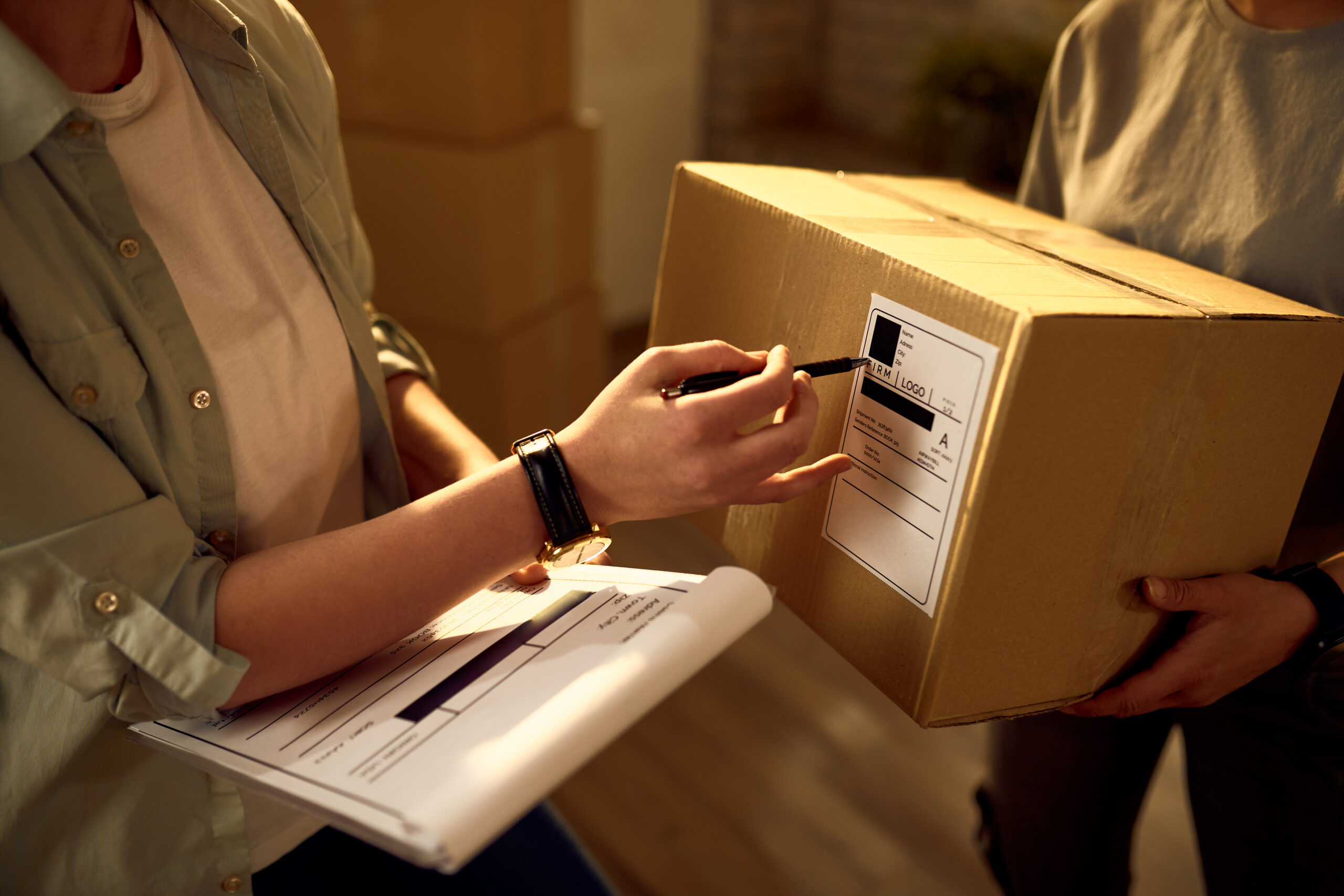In the dynamic landscape of online retail, 3PL ecommerce fulfillment has become a fundamental element for achieving success. These service providers deliver a full spectrum of logistics and fulfillment operations, allowing e-commerce companies to expand effectively and satisfy the increasing expectations of digital consumers. E-commerce entities, by delegating intricate logistics tasks to 3PL ecommerce fulfillment specialists, can concentrate on their essential competencies such as product innovation and customer engagement. This partnership capitalizes on the specialized skills and infrastructure of dedicated logistics experts.
The Transformative Role of 3PL in Ecommerce Fulfillment
3PL fulfillment goes beyond mere storage and shipping; it’s an integrated solution that encompasses inventory management, order processing, packaging, and distribution. For e-commerce businesses, this means having the ability to manage high order volumes and seasonal fluctuations without compromising on delivery times or customer experience. 3PL providers utilize advanced technology and systems to streamline the fulfillment process, ensuring accuracy and efficiency from the warehouse to the customer’s doorstep.
Selecting the Right 3PL Partner for E-commerce Success
Choosing the right 3PL provider is crucial for e-commerce businesses. A suitable 3PL partner should not only have a robust technological infrastructure but also a deep understanding of the e-commerce landscape. This includes having strategically located warehouses, scalable solutions to handle varying order volumes, and expertise in handling specific product types. Additionally, the ability of a 3PL provider to integrate seamlessly with various e-commerce platforms is essential for real-time data syncing and efficient order processing.
Integrating 3PL with E-commerce Platforms for Seamless Operations
Integration between e-commerce platforms and 3PL systems is a game-changer. This synergy enables real-time inventory updates, order tracking, and accurate forecasting, which are critical for maintaining stock levels and meeting customer expectations. Such integration ensures that the entire order fulfillment process is transparent, efficient, and responsive to the dynamic needs of e-commerce businesses.
Overcoming E-commerce Fulfillment Challenges with 3PL
E-commerce businesses often grapple with challenges like managing large inventories, ensuring timely deliveries, and handling return logistics. 3PL providers offer tailored solutions to these challenges, bringing in their expertise in logistics and supply chain management. By leveraging the network of warehouses and advanced logistics solutions provided by 3PLs, e-commerce businesses can significantly improve their order fulfillment processes, reduce shipping times, and enhance customer satisfaction.
Enhancing E-commerce Efficiency with Order Fulfillment Services
Order fulfillment services are pivotal in the e-commerce supply chain, ensuring that products are efficiently picked, packed, and shipped to customers. These services are designed to handle the logistics of order processing, enabling e-commerce businesses to focus on growth and customer engagement. By leveraging such services, businesses can significantly improve delivery times, reduce operational errors, and enhance overall customer satisfaction.
Navigating the Challenges: Disadvantages of 3PL in E-commerce
While third-party logistics (3PL) offers numerous advantages, it’s also important to recognize its potential drawbacks. One of the disadvantages of 3PL is the loss of direct control over the logistics process, which can sometimes lead to discrepancies in service quality. Additionally, dependency on a 3PL provider can pose risks if the provider faces operational issues, affecting the e-commerce business’s ability to fulfill orders efficiently.
Understanding Different Types of 3PL Providers
The 3PL landscape is diverse, with various types of providers offering different levels of service. Some 3PLs specialize in specific aspects like warehousing or transportation, while others offer comprehensive logistics solutions. Understanding the type of 3PL that aligns with your business needs is crucial for an effective partnership. This could range from warehousing and distribution of 3PLs to those offering specialized services like reverse logistics or drop shipping.
The Importance of Reverse Logistics in E-commerce
Reverse logistics, the process of handling returns and exchanges, is an essential component of e-commerce operations. Efficient reverse logistics not only ensures customer satisfaction but also minimizes losses associated with returned goods. Implementing effective reverse logistics practices, possibly through a competent 3PL provider, is key to maintaining a positive brand reputation and customer loyalty.
Every E-commerce Business’s Roadmap to Success
Every e-commerce business, regardless of size, needs a robust strategy for handling order fulfillment. This includes choosing the right fulfillment provider, managing inventory effectively, and ensuring a seamless order-to-delivery process. A well-structured fulfillment strategy is fundamental to scaling an e-commerce business and meeting the evolving demands of online shoppers.
Exploring 3PL Dropshipping: A Modern E-commerce Solution
3PL dropshipping is a popular e-commerce model where products are shipped directly to customers from a third-party provider. This model eliminates the need for e-commerce merchants to maintain inventory, significantly reducing overhead costs. For businesses looking to expand their product offerings without substantial investment in inventory, 3PL dropshipping can be an attractive option.
Selecting the Right Fulfillment Provider: A Critical Decision
Choosing the right fulfillment provider is crucial for e-commerce success. This decision should be based on factors like the provider’s technological capabilities, scalability, geographic reach, and experience in handling similar products. A reliable fulfillment provider can greatly enhance operational efficiency, allowing e-commerce businesses to deliver exceptional customer service.
The Pros and Cons of Outsourcing Fulfillment to a 3PL
Outsourcing fulfillment to a 3PL can offer several benefits, including access to advanced logistics infrastructure and expertise. However, it’s important to weigh these benefits against potential downsides, such as reduced control over the fulfillment process and reliance on the 3PL’s operational stability. E-commerce businesses must carefully assess their specific needs and capabilities before deciding to outsource.
Maximizing the Use of 3PL Warehouses for E-commerce
Utilizing 3PL warehouses can be a game-changer for e-commerce merchants. These warehouses offer flexible storage solutions and are often equipped with advanced systems for inventory management and order processing. By leveraging 3PL warehouses, e-commerce businesses can enhance their storage and distribution capabilities, leading to improved order fulfillment efficiency.
The Central Role of Fulfillment Centers in E-commerce Success
Fulfillment centers are the heart of e-commerce operations, serving as crucial hubs where products are stored, orders are processed, and shipments are orchestrated. These centers are designed to efficiently handle the storage, pick and pack, and shipping of goods, ensuring that customers receive their orders promptly and accurately. The effectiveness of a fulfillment center directly impacts customer satisfaction and retention, making it a critical component of the e-commerce supply chain.
Maximizing Efficiency with 3PL Service Providers
Third-party logistics (3PL) services have become indispensable in the modern e-commerce landscape. 3PL companies offer specialized logistics expertise, from managing warehouse space to handling complex shipping requirements. By partnering with a 3PL service, e-commerce businesses can leverage their logistical expertise and infrastructure, allowing them to focus more on core business activities like marketing and product development.
The Strategic Advantage of E-commerce Fulfillment Companies
E-commerce fulfillment companies specialize in handling the unique needs of online retailers. These companies provide a range of services, including inventory management, order processing, and shipping. By using advanced technology and streamlined processes, e-commerce fulfillment companies help online businesses manage their logistics more effectively, enabling faster delivery times and reduced shipping costs.
Outsourcing Fulfillment: A Game-Changer for E-commerce Businesses
Outsourcing fulfillment has become a strategic move for many e-commerce businesses. By outsourcing, companies can benefit from the expertise and resources of specialized logistics providers, allowing them to manage large volumes of orders more efficiently. This approach not only helps in reducing operational costs but also enables businesses to scale quickly to meet the demands of their growing customer base.
Managing Shipping Costs: A Key to E-commerce Profitability
Shipping costs are a significant concern for e-commerce businesses, as they can directly impact profit margins and customer satisfaction. Effective management of shipping costs involves negotiating rates with carriers, optimizing packaging to reduce weight and dimensions, and utilizing multiple shipping methods to offer cost-effective solutions to customers. Balancing speed and cost in shipping is crucial for maintaining a competitive edge in the e-commerce market.
The Importance of Efficient Pick and Pack Processes
The pick and pack process is a critical step in the fulfillment cycle. Efficient picking and packing ensure that orders are processed quickly and accurately, reducing the likelihood of errors and returns. Implementing automated systems and streamlined procedures in the pick-and-pack process can significantly enhance the overall efficiency of fulfillment operations.
Optimizing Warehouse Space for E-commerce Fulfillment
Effective utilization of warehouse space is vital for e-commerce fulfillment. Optimizing the layout and organization of the warehouse can lead to more efficient inventory management and faster order processing. E-commerce businesses need to consider factors like product size, turnover rate, and seasonal variations when planning their warehouse space to ensure they can accommodate fluctuating inventory levels.
Choosing the Right Logistics Provider for Your E-commerce Business
Selecting the appropriate logistics provider is crucial for e-commerce businesses. The right provider should offer a range of services that align with the specific needs of the business, such as global shipping capabilities, advanced tracking systems, and flexible storage solutions. A reliable logistics provider can be a valuable partner in ensuring timely and cost-effective delivery of orders.
Strategies for Efficiently Shipping Orders in E-commerce
Efficiently shipping orders is fundamental to e-commerce success. Strategies for effective shipping include using automated software for label generation and tracking, exploring different carrier options for the best rates and service levels, and offering customers multiple shipping choices. A well-planned shipping strategy can significantly enhance customer satisfaction and loyalty.
The Future of E-commerce and 3PL: Emerging Trends and Innovations
The future of e-commerce logistics is being shaped by innovations in 3PL. Emerging trends such as automation in warehouses, adoption of artificial intelligence for logistics optimization, and expansion of international fulfillment networks are transforming how e-commerce businesses manage their logistics. These advancements promise faster delivery times, reduced operational costs, and improved customer experiences, making 3PL an integral part of the e-commerce ecosystem. Read more here.
Best Practices for E-commerce Businesses Partnering with 3PL Providers
To maximize the benefits of a 3PL partnership, e-commerce businesses should focus on clear communication, setting realistic goals, and aligning expectations. Regularly reviewing performance metrics and being open to adjustments can help in fine-tuning the partnership for optimal results. Additionally, understanding the range of services offered by the 3PL provider and how they align with your business goals is key to a successful collaboration.
Embracing the Future: The Strategic Imperative of 3PL in E-commerce Growth
In conclusion, the incorporation of 3PL into the e-commerce sector marks a transformative step towards operational excellence and customer satisfaction. This strategic alliance goes beyond mere logistics and fulfillment; it signifies a pivotal shift towards a more agile, efficient, and customer-focused business model. The future of e-commerce is inextricably linked to the capabilities, innovations, and scalability offered by third-party logistics. As e-commerce businesses continue to navigate the complexities of a rapidly evolving digital marketplace, the role of 3PL emerges not just as a facilitator but as a catalyst for growth, adaptability, and long-term success. The journey with 3PL is not just about streamlining operations; it’s about embracing a vision that aligns with the future of commerce itself.
To explore the best ecommerce fulfillment services, reach out to Phase V now.



